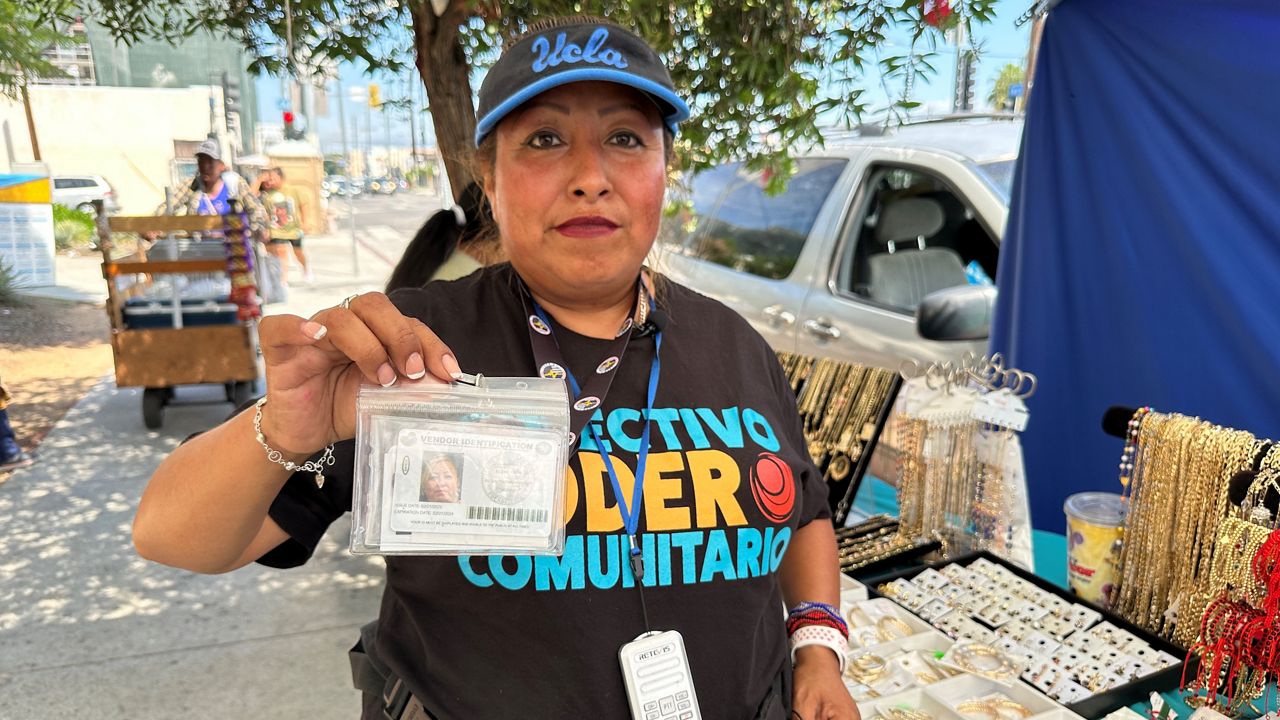LOS ANGELES — Street vendors have been a part of Los Angeles culture for decades, selling anything from clothes to food.
Lidia Catalan is one of those street vendors who began her journey eight years ago, selling her son’s old toys to make ends meet.
Since then, her business has transformed into a jewelry shop that she packs and unpacks every weekend, setting up outside the Junipero Serra Branch Library.
The area looks a lot different now than when she began selling. Catalan says that everyone is more organized and knows their rights. That is because many, including herself, have become community leaders working with the Community Power Collective advocacy group.

Together, they fought for an official street vending system.
That effort led to the City of Los Angeles creating the first street vending permit in 2020. Catalan said it was a big win for the street vendor community, despite the annual price tag of $541.
She said she could pay for the permit with the help of the community advocacy group. However, many have struggled to pay for the permit because of the price tag, she added.
That is why Sergio Jimenez, a senior organizer with Community Power Collective, has been advocating for a permit that will reduce the financial burden for street vendors.
“Twenty-seven-fifty-one is accessible, dismantles a lot of the negative narratives that exists of those who say ‘Oh there is a vending permit, well buy it,’ but don’t know all these other factors that deny a vendor the true path of legality,” Jimenez said.

The cost issue is reflected in the city’s data. Of the 16,000 permits they expected to sell, they sold 944. In an effort to make these permits more accessible, Councilmember Nithya Raman proposed a motion to reduce the cost of the permit from $541 to $27.51.
The new price takes into consideration the annual income of street vendors. If approved, it would cover the costs of issuing the permit, while the city’s budget would cover the cost of enforcing the program.
For the 2023 and 2024 year, the city has estimated the cost of enforcing the program and outreach is expected to be $3.8 million.
The motion was unanimously approved by the Civil Rights Equity, Immigration, Aging and Disability Committee and now moves to the Public Works Committee.
Raman said street vendors are not only integral to our local economy, they make up the very fabric of our city.
Adding we need to adjust the costs associated with street vending to meet people where they are as too many livelihoods are on the line.
If vendors are found without a permit, they can be fined anywhere from $250 to $1,000.
Catalan is hoping a reduction in price could help avoid those fines.
“We also contribute to California’s economy,” Catalan said.



